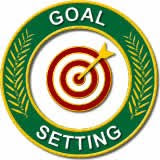Your SEO efforts will be wasted if you do not have a clear picture of:
• what you want to achieve through your website
• who you are targeting
• what you want them to do
• what your long-term destination is
• what your progress is (from time to time)
In addition, you also need to know what the best method is to reach your audience (what are your best keywords) and how much work you will have to do to be to meet your goals (competition analysis).
The next two posts will look at keyword research and competition analysis – the rest, I am going to discuss
below.
Let us start by making two lists.
What Is Your Website’s Purpose?
The first list will be a collection of points that answer the question posed above – what purpose does your
website serve?
For some people, a website is an extension of their lives / interests / business – it is a means to bring attention
to what they are doing offline.
For others, their website IS their interest / business – and that brings with it a whole new set of priorities.
What are the overall goals for your website? Is it to sell something? Is it to generate leads for your consulting
business? Is it simply to maintain an online presence and use it to provide basic information to your customers?
For some companies, branding will be an important part of their site’s purpose. For others, it could be community building around their products and / or services.
Your goals (or your company’s goals) and business strategy will have a strong impact on how you will setup your website and how you will define its purpose.
To help you out, I am going to give you two examples to help explain how you can pinpoint your site’s purpose – a real-life analysis of an online company, and a fictional situation of an offline business that wants to use their website to generate clients.
Example #1:
For example, consider the situation of popular traffic tracking online service, StatCounter (SC). SC provides an easy-to-use, non-intrusive hit counter for free to its users, but that is the ‘sweetener’ they use to make people test their service before pitching them the paid version of this service (which removes certain restrictions that come with the free version).
So how would we define StatCounter’s primary goal?
Primary Goal: To provide the best paid hit tracking services.
Your site’s primary goal will help you keep grounded and on the right track when you are deciding what to do on the site.
Sometimes, your website may have more than one purpose – in that case you would split them into one primary goal and one (or more) secondary goals.
For StatCounter, their secondary goal is (I’m guessing) something like this:
Secondary Goal: To sell ad space to capitalize on the site’s traffic and popularity and earn a steady second income.
Example #2:
Consider the hypothetical case of a freelance web designer, Brian, who wants to use his website to get design
gigs. He also has a passion for teaching and wants to channel that into sharing his knowledge through his website. In addition, Brian wants the website to earn him a secondary income (apart from the design gigs) so he wants to sell website templates and custom site scripts on his website as well.
Let’s see how that reflects in his website goals:
Primary Goal: To generate leads
Secondary Goal #1: To write about web design techniques and share what he knows
Secondary Goal #2: Make money by selling templates and scripts
What is really good here is that the two secondary goals tie-in and overlap with Brian’s primary goal –his site templates and his articles are just two more ways for Brian to generate more leads.
Ideally, you would want to limit your secondary goals to a maximum of 3 (the fewer, the better). Having a singular focus for your website can help you get laser-focused in your search marketing efforts.
However, sometimes your aims might be grander and there could be more than one thing that you want to make happen through your website. Just make sure that you do not lose focus of the overall picture or muddle up your goals by having too many of them.
Who is your target audience?
Whether you are selling shoes or asking for donations, you need to pin down who your target audience is.
Usually people define their target audience in broad terms:
• someone selling resume writing software could define his audience as people who need new / better
resumes
• A company selling high-end stereo equipment would be targeting for audiophile enthusiasts.
Part II is coming soon ;-) ...












0 Responses to Setting Goals - Part I